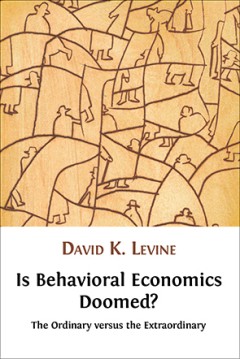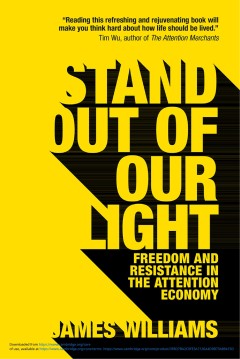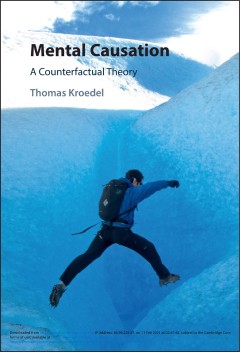Filter by

Warlike and peaceful societies : the interaction of genes and culture
Read Agner Fog's introductory post on our blog [...] it presents a valuable overview of the extensive literature on the societal correlates of modern warfare and makes a convincing, and timely, case for the deceptive use of the threat of war by populists or budding dictators. — Carel P. van Schaik, University of Zurich, Adaptive Behaviour (May 2018) https://doi.org/10.1177/105971231877197…
- Edition
- -
- ISBN/ISSN
- 9781783744053
- Collation
- 364p.: colour, ill.
- Series Title
- -
- Call Number
- 303.4 WAR f

Is behavioral economics doomed?: the ordinary versus the extraordinary
It is fashionable to criticize economic theory for focusing too much on rationality and ignoring the imperfect and emotional way in which real economic decisions are reached. All of us facing the global economic crisis wonder just how rational economic men and women can be. Behavioral economics — an effort to incorporate psychological ideas into economics — has become all the rage. This bo…
- Edition
- -
- ISBN/ISSN
- 9781906924942
- Collation
- vii, 154 p. ; ill
- Series Title
- -
- Call Number
- 330.019 LEV i

The psychodynamics of enlightened leadership : coping with chaos
This open access book provides a comprehensive look at the pluses and minuses of leadership in times of an unparalleled crisis, such as the COVID-19 global pandemic. It examines the COVID-19 crisis in terms of psychodynamics, crisis management, and especially from the standpoint of complex, messy systems. It analyses how leaders need to think and act differently to cope better with—unfortunat…
- Edition
- -
- ISBN/ISSN
- 9783030717643
- Collation
- xiii, 86p. : ill.
- Series Title
- -
- Call Number
- 158.4 MIT p

Stand out of our light : freedom and resistance in the attention economy
Former Google advertising strategist, now Oxford-trained philosopher James Williams launches a plea to society and to the tech industry to help ensure that the technology we all carry with us every day does not distract us from pursuing our true goals in life. As information becomes ever more plentiful, the resource that is becoming more scarce is our attention. In this 'attention economy', we …
- Edition
- -
- ISBN/ISSN
- 9781108453004
- Collation
- xv, 134p. : ill.
- Series Title
- -
- Call Number
- 153.733 WIL s

Mental causation : a counterfactual theory
Our minds have physical effects. This happens, for instance, when we move our bodies when we act. How is this possible? Thomas Kroedel defends an account of mental causation in terms of difference-making: if our minds had been different, the physical world would have been different; therefore, the mind causes events in the physical world. His account not only explains how the mind has physical …
- Edition
- -
- ISBN/ISSN
- 9781108762717
- Collation
- x, 224p. : ill.
- Series Title
- -
- Call Number
- 128.2 KRO m

The structures of the film experience by Jean-Pierre Meunier : historical ass…
For the first time this volume makes Jean-Pierre Meunier's influential thoughts on the film experience available for an English-speaking readership. Introduced and commented by specialists in film studies and philosophy, Meunier's intricate phenomenological descriptions of the spectator's engagement with fiction films, documentaries and home movies can reach the wide audience they have deserved…
- Edition
- -
- ISBN/ISSN
- 9789048537846
- Collation
- 354 p.
- Series Title
- -
- Call Number
- 791.43019 STR s

Fifty shades of grey : exploring the dark sides of leadership and followership
The scientific field of leadership and followership is fast evolving and has seen several interesting developments over recent years. The early heroic views of leadership are slowly turning into more nuanced perspectives, including the understanding that leadership and followership are mutually dependent on each other. Likewise, there is a growing awareness that the focus on the positive side o…
- Edition
- -
- ISBN/ISSN
- 9782889456956
- Collation
- 139 p.
- Series Title
- Frontiers Research Topics
- Call Number
- 658.4092 BRA f

Tales of research misconduct : a Lacanian diagnostics of integrity challenges…
This monograph contributes to the scientific misconduct debate from an oblique perspective, by analysing seven novels devoted to this issue, namely: Arrowsmith by Sinclair Lewis (1925), The affair by C.P. Snow (1960), Cantor’s Dilemma by Carl Djerassi (1989), Perlmann’s Silence by Pascal Mercier (1995), Intuition by Allegra Goodman (2006), Solar by Ian McEwan (2010) and Derailment by Died…
- Edition
- -
- ISBN/ISSN
- 9783319655543
- Collation
- ix, 263p. : ill.
- Series Title
- -
- Call Number
- 174.95 ZWA t

Time predictions : understanding and avoiding unrealism in project planning a…
Predicting the time needed to complete a project, task or daily activity can be difficult and people frequently underestimate how long an activity will take. This book sheds light on why and when this happens, what we should do to avoid it and how to give more realistic time predictions. It describes methods for predicting time usage in situations with high uncertainty, explains why two plus tw…
- Edition
- -
- ISBN/ISSN
- 9783319749532
- Collation
- xii, 110p. : ill.
- Series Title
- -
- Call Number
- 658.404 HAL t

The illiterate listener : on music cognition, musicality and methodology
We have known for some time that babies possess a keen perceptual sensitivity for the melodic, rhythmic and dynamic aspects of speech and music: aspects that linguists are inclined to categorize under the term ‘prosody’, but which are in fact the building blocks of music. Only much later in a child’s development does he make use of this ‘musical prosody’, for instance in delineating a…
- Edition
- -
- ISBN/ISSN
- 9789048526987
- Collation
- 24 p.
- Series Title
- -
- Call Number
- 781.11 HON i
 Computer Science, Information & General Works
Computer Science, Information & General Works  Philosophy & Psychology
Philosophy & Psychology  Religion
Religion  Social Sciences
Social Sciences  Language
Language  Pure Science
Pure Science  Applied Sciences
Applied Sciences  Art & Recreation
Art & Recreation  Literature
Literature  History & Geography
History & Geography